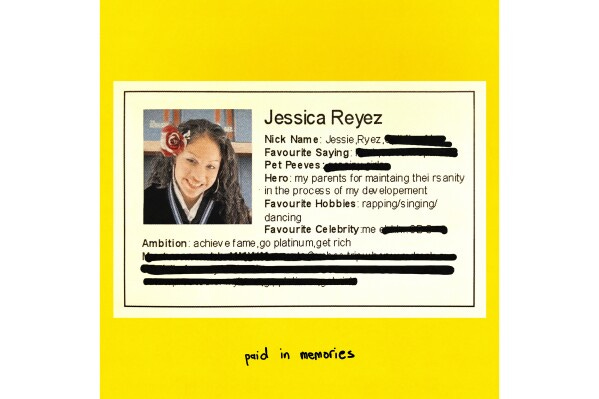Ask the Right Questions
Some think asking questions make them look less intelligent - it's the opposite.
The Socratic method is the one of the foundations of knowledge gathering and inquiry, and is taught through secondary and post-secondary education in the West. It is woven into the pedagogy most of us were subject to in our schooling, so it feels natural.
Its application extends well beyond the educational sphere into the professional space. The questioning of strategy, or probing a problem to discover potential solutions, or pressure-testing a tactical approach, drives excellence in the services industry. And it’s not just getting to the right answer (though that is crucial) - there’s also a method to asking the right questions.
Don’t Be a One-Trick Pony
While the Socratic method is helpful, it isn’t the only way to arrive at the best conclusion; it’s simply one way to do so (albeit, a proven one.)
The back-and-forth via questions is best suited for when a project has some breathing room in the deadline and the right people are in the room to answer technical questions or help determine if certain roadblocks are navigable (and potentialyl how.) It is not for chaotic situations when a decision needs to be made, or even complex ones with tight deadlines - this method lives solidly in the upper right of the Cynefin framework, if not a bit in the upper left when the luxury of time exists.
The Socratic method is great, but it’s not the only curiosity-based approach to questioning. Querying can generously be categorized thusly:
Information Gathering: These are questions you need to ask if you’re not 100% on a subject that is crucial to your workstream. I tell my team not to leave a meeting without understanding exactly what they need to do in terms of next steps and action items. If you’re leaving a meeting only 99% sure, you will get burned by that 1%. Maybe not today, maybe not tomorrow, but you’re playing with fire and statistically it will eventually catch up with you. And if you’re a believer in Murphy’s Law (or just a pessimist), it will happen at a very inopportune time.
Concern Trolling: A harsh name for what can actually be a productive line of questioning, this is to be employed when you really don’t believe in an idea or strategy but don’t want to overrule it unilaterally for myriad reasons (it’s coming from leadership, you are trying to be a consensus-builder and not a dictator, there are political sensitivities in the room, etc.) The questions should be genuine, and said in a tone that isn’t dripping with doubt or derision. The end goal is to - politely - poke enough holes in the existing framework that you begin to gain ground on a new one. Alternatively, the idea could be defended well enough to remain. Either way, the end product wins.
It’s Not a Debate, It’s a Collaboration
Often people approach asking questions as a way to win an argument. They are used to push another party into a rhetorical corner that eventually leads to a logical fallacy that acts as a checkmate in debate chess. While an effective argumentative approach, it is not necessarily collaborative or productive when you engage in a zero-sum game like this.
And crucially, it’s not considered the Socratic method. This approach prioritizes dialogue and collaboration, utilizing open-ended questions to delve deeper into the assumptions behind a statement or an otherwise given premise.
There are a couple of ways to tell if you’re in a healthy back-and-forth to try to drive a better work product or if you’re stuck between egos arguing over who is right and thus “wins.”
The following would indicate an argument:
Participants are not allowed to finish their answers or are being cut off;
Questions become increasingly closed-ended and paint things as black and white, allowing little room for nuance;
Questions are used to push someone into a particular position, not to better understand one;
Questions cease when one side or one person feels they’ve “won,” not when a solution is determined.
On the other hand, the following indications would point to a healthy debate:
Everyone who wants to speak does and is not crowded out by other participants;
Questions remain open-ended and curious, digging into the context of a particular point or assumption to untangle it;
Questions continue until alignment is gained, and could even continue through the finalization of the final work product or move forward task.
Go Forth and Ask
Of course, none of this strategy works if you don’t simply begin asking questions. Someone had come to me recently worried about an upcoming meeting that they knew they were going to have a lot of questions for and were concerned about the perception that they would look uninformed.
I asked them what was worse: the perception of being uninformed on the way to becoming informed, or staying quiet during the meeting and actually leaving it uninformed? That person went and asked the questions and it turns out, they were not the only one with the same or similar questions and the line of inquiry they initated drove a better consensus among the entire group.
We were told in school to speak up and ask, as someone else in class may very well have the same question. The same principle applies to work meetings (just instead of a grade that’s meaningless, you get paid money, which is useful.) If you have a question - whether to get informed on something, concern troll your way out of a bad idea, or simply return to those nostalgiac days at your desk in high school and utilize the Socratice method - simply ask it.
Grab Bag Sections
WTF New England Aquarium: When I was a kid growing up outside Boston, one of my favorite places to go was the New England Aquarium. Its piece de resistance is a central multi-floor saltwater tank with all kinds of marine life living in it - including, importantly, sharks. Seeing sharks as a boy under the age of 17 is a magical experience, and I would love to go watch them in downtown Boston (honestly, seeing sharks as a man nearing 40 is still a magical feeling.)
So when I was back home for the week with the kids on school break, one of the days we all went into the city (via America’s oldest subway system) and hit up the aquarium (after a delicious meal for the whole family at The Sail Loft - have I mentioned we need sponsors?) You can imagine my surprise when we traversed the entire three floors of tank and there were no sharks. Not even the small ones that don’t really count. Not one.
My son didn’t care (the elevator was his favorite part of the museum - $35 well spent) and my daughter was all about the penguins. So while their day wasn’t ruined, I wanted to get to the bottom of it. I researched online (i.e. Googled “new england aquarium sharks not there”) and all I got was a lot of press about Cirri, the new nurse shark they got in 2023. But, dear reader, Cirri was not there last week and even though nurse sharks are one of the lamer shark species, I would have noticed her in there. If anyone has information regarding Cirri’s whereabouts, please let this newsletter know.
Album of the Week: I’m a few weeks late, but the inestimable Jessie Reyez has dropped her third album PAID IN MEMORIES and while she mercilessly trolled us last April with a joke about a surprise album, the wait was worth it as she brings an album full of raunch and pain that we’re used to from the Canadian singer-songwriter.
The album starts off very strong, with the vulnerable “I Never Said I Was Sane.” In fact, the first half of the record is pretty incredible, especially for a junior album. Her collaborations with 6LACK continue with the solid “6LESSINGS" and you get some solid features from Miguel in “Jeans” and Weezy in “Ridin” - do NOT listen to those with impressionable kids or your parents in the room.
But the standouts are when Jessie digs into past trauma and leaves it all on the studio floor. First is “Cudn’t B Me,” which is a percussion-heavy track with some synth and vocal layering throughout that gives the song a raw, live feeling. Reyez probes the tragedy of settling in relationships and how that affects the longevity of love (like I said, vulnerable stuff.)
The second is in the Latin-inspired instrumental-backed “Nights We’ll Never Have,” where Jessie laments her desire - not exactly unrequited - for someone else in a relationship. She really wants to be with them, and she knows they want to be with her, too, but they both have too much morals to do anything about it. It’s unclear how the tension ends for Jessie, but if it’s anything like this newsletter’s experience in a similar situation it could very well be two kids and a house in the burbs.
Pick up a copy of Paid in Memories (still looking for the vinyl version, so if you see it please give me a shout) and bask in some quality singer-songwriting from Jessie Reyez.
Quote of the Week: "The man who asks a question is a fool for a minute, the man who does not ask is a fool for life." - Confucius








